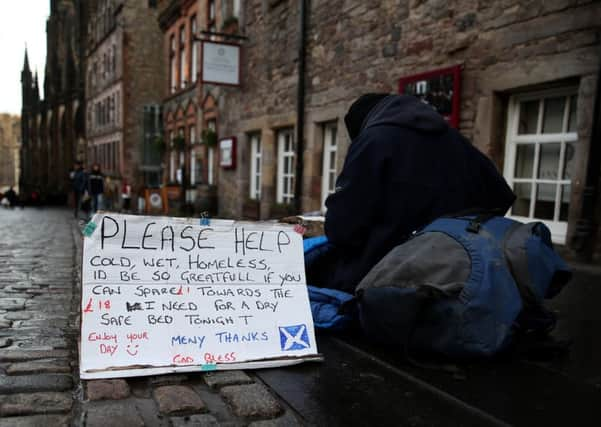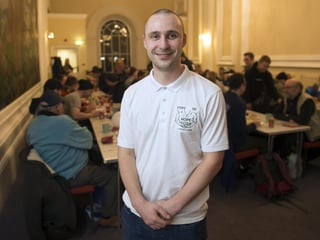Here’s what to do if you see someone sleeping rough – Ewan Aitken


Someone I met at a party recently asked me an interesting variation of a question I am often asked about when people discover I work for Cyrenians – what to do when we see folk sleeping rough.
They are part of a team who hand out food to folk experiencing homelessness but were concerned because someone had said we shouldn’t give folk sleeping rough food because it “makes them dependent on handouts” and instead we should give money to organisations who can support folk out of their tough reality. What did I think?
Advertisement
Hide AdAdvertisement
Hide AdAs ever, the answers to these kinds of questions are not simple, nor something which can be reduced to a binary right/wrong approach. Being compassionate, wanting to help immediately when we see someone suffering, is a normal and deeply human emotion. Ironically, it’s our desire to be compassionate but not knowing how which can make us feel uncomfortable, sometimes to the point of negative reactions, when we see folk sleeping rough but feel we can do nothing for them.
The answer to the question is, it depends on each situation. The journey into homelessness is different for each person and the journey out will also be different.
Whilst there might be a potentially unintended negative consequence of giving food to some individuals, for others it might be exactly what they need – not just a sandwich but a moment when they realise they do matter, people do care, and they can begin to believe in themselves again.
Homelessness a symptom of deeper problems
To argue we should walk on by and only support through the actions of others might, it could be argued, carry with it the danger of professionalising compassion. Giving food might have downsides, but it also has upsides – so my advice is do what you feel most able to do, for it is a problem which is not going to go away any time soon.
Across Scotland, a household loses their home every 18 minutes. Homelessness affects us all – but not equally. If you’re struggling to make ends meet, and do not have enough to lead a decent standard of living, you are more at risk of homelessness. If you grew up in a household that is having to make impossible choices between whether to heat the home, put food on the table, or pay the rent, you are more at risk of homelessness.
The link between poverty and homelessness is one example of how homelessness is always a symptom of other challenges people have faced in their lives; challenges that have structural and systemic roots.
We desperately need more preventative work, way upstream, to prevent people ending up in that place in the first instance. That means making sure that we build up resilient communities so that no one is left without the support they need, and making sure that we free our communities from the grip of poverty to allow them to flourish.
Help in whatever way you can
At Cyrenians this week, we launched our plan on how we’re going to tackle the causes and consequences of homelessness over the next five years.
Advertisement
Hide AdAdvertisement
Hide AdWe’ll continue developing our preventative work, to make sure people receive the support they need way before they reach the point of applying as homeless. We’ll continue to help those in the toughest of realities of homelessness through a person-centred model we know works – establishing a trusted relationship and supporting people to decide their journey back to inclusion.
But we can’t change Scotland on our own. We’re going to encourage other organisations and agencies to work in that way as well – to move from a system of fractured, episodic care that patches people up in a crisis, to a system that’s easy to navigate, accessible, and built on shared values.
We need everyone’s help – in whatever way they can. Whether that’s giving food, money, time, skills, campaigning, voting; or whatever else we can each do to act compassionately for those in the toughest of realities.
Ewan Aitken is CEO of Cyrenians Scotland.
